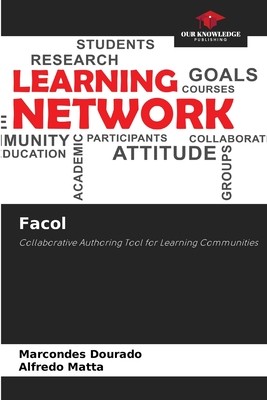
- We will send in 10–14 business days.
- Author: Marcondes Dourado
- Publisher: Our Knowledge Publishing
- ISBN-10: 6208631033
- ISBN-13: 9786208631031
- Format: 15.2 x 22.9 x 0.5 cm, minkšti viršeliai
- Language: English
- SAVE -10% with code: EXTRA
Reviews
Description
This work aims to model a collaborative authoring tool for learning communities with characteristics based on studies of the theory of knowledge and the modeling of human interactivity. The study also addresses the technological context of today's society, tending towards the characteristics and attitudes of social subjects, analyzing the importance of socio-interactionist concepts, tending towards the concept of learning communities. The tool is modeled using graphs and diagrams from the Unified Modeling Language (UML), which clearly and precisely present the structure of the system, so that educators and scholars, even without in-depth knowledge of computer science, can understand how the environment works. The idea for this study arose from observing the various software programs developed for distance education courses and it became clear that there are insufficient tools for building collective knowledge, capable of composing a distance education system using a learning community approach.
EXTRA 10 % discount with code: EXTRA
The promotion ends in 24d.03:16:42
The discount code is valid when purchasing from 10 €. Discounts do not stack.
- Author: Marcondes Dourado
- Publisher: Our Knowledge Publishing
- ISBN-10: 6208631033
- ISBN-13: 9786208631031
- Format: 15.2 x 22.9 x 0.5 cm, minkšti viršeliai
- Language: English English
This work aims to model a collaborative authoring tool for learning communities with characteristics based on studies of the theory of knowledge and the modeling of human interactivity. The study also addresses the technological context of today's society, tending towards the characteristics and attitudes of social subjects, analyzing the importance of socio-interactionist concepts, tending towards the concept of learning communities. The tool is modeled using graphs and diagrams from the Unified Modeling Language (UML), which clearly and precisely present the structure of the system, so that educators and scholars, even without in-depth knowledge of computer science, can understand how the environment works. The idea for this study arose from observing the various software programs developed for distance education courses and it became clear that there are insufficient tools for building collective knowledge, capable of composing a distance education system using a learning community approach.


Reviews